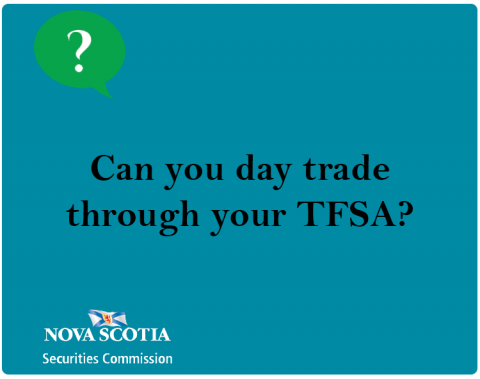Submitted by nsscadmin on

We’ve got another reader question this week. One of our readers is interested in trading stocks but had a question after reading some posts on an investing Facebook group that they frequent. A post in their Facebook group said that investors are not allowed to day trade or make frequent trades using their TFSA account. Another poster in the same group denied that this was true. Our reader is looking for a firm answer to the question, can you day trade through your TFSA?
The Nova Scotia Securities Commission does not provide investment advice. We are not advising, or recommending investors to day trade. This post is simply to educate investors on how day trading affects the status of a TFSA account so they can be an informed investor when making investment decisions.
Anyone confused by the definition of day trading should read our post on day trading before proceeding. If you are buying and selling stocks using a TFSA you should not participate in day trading or overly frequent trading. If you do so, the government may consider your trading activity to be a business and will make you pay income tax on your trading activity. The CRA can audit taxpayers who actively trade using a TFSA.
When determining whether a TFSA should be subject to tax, the CRA would examine several factors during their audit. These factors include the duration of the holdings, the frequency of your trades, the quantity of securities traded, the time spent on trading, and your intention to hold investments and resell them for a profit. If the CRA determines that your trades are an active business, you may be subject to higher tax rates for business income and not benefit from certain measures of capital gains and losses. Further guidance about transactions in securities can be found in CRA’s interpretation bulletin IT-479R.
If you hold stocks in your TFSA and are worried that your buying and selling of stocks could be considered as day trading and be taxable as a business, you should consult a tax expert or a securities lawyer.
